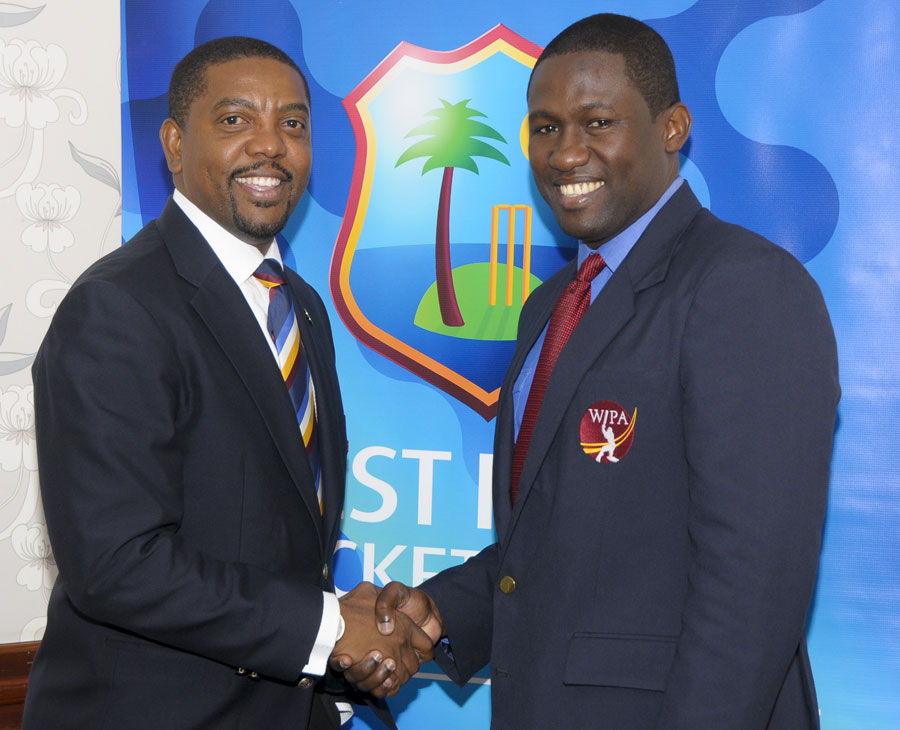Following years of often bitter disputes, the West Indies Cricket Board and the West Indies Players Association have signed a new collective bargaining agreement and memorandum of understanding on Thursday. Whycliffe Cameron, the WICB president, signed on behalf of the board, while Wavell Hinds, the WIPA president, signed on behalf of the association.
Cameron hailed the signing as the most important thing done for West Indies cricket in the past two years. “What it means is that we are going to have 105 players engaged in cricket all year round,” Cameron said. “We are going to have 15 at the WICB level – which I will call the international team, while we will have 90 players at the regional franchise level – 15 players among the six teams.
“This is a watershed moment for West Indies cricket as we are setting up our franchise and professional system to ensure that West Indies cricket can go back to its rightful place,” Cameron said. “West Indies cricket is not about the administrators, it is really about the players.
“I am very happy that we have been able to negotiate over the last couple of months when it was very difficult but we have come to the point where we believe we have the making of a very good agreement that will ensure that we can take West Indies cricket to the top… The agreement is we do better as an organisation and the players do better.”
Hinds said the agreement promoted meritocracy and involved an increased share of WICB revenue for domestic players, unlike the old structure where the majority share went to international players. “We have decided as a body, that we will take a chunk of that amount from the international pool and spread it across the regional group into the player pool on a meritocracy basis.
“I think it is spread out nicely…This document covers everyone in full,” Hinds said. “It is important that we put the different categories in place from the start to the professional level. There is a pay-as-you-play or a minimum salary, retainer contracts up to the ‘A’ level that the WICB affords the international cricketers.
“But we think that it must be a meritocracy basis and that you have to earn your keep to get into the different categories,” Hinds said. “As the players association, once that was understood from the membership and of course, we highlighted the fact that it is replicated and practised around the world, the players bought into it and the WICB had a similar vision, so it was easy to come to an agreement.”
Hinds said that while the agreement was not “perfect”, it brought stability to the system and that the players were prepared to make “sacrifices” on their part. “It is not a perfect document. Of course, it is still a work in progress, so there will be trials and errors and we are all prepared for that as that’s the nature of life and business.
“We know that for the long haul and legacy of West Indies cricket and where we came from as a region, fetching balls from cane fields to the point where we had 20 years of glory, led by Clive Lloyd and company, that to get back to those years, we needed to make sacrifices as players and make sure that we are prepared as players and not learning on the job.”
Richard Pybus, the WICB director of cricket, said the agreement was “fantastic” for the players. “We will have structured support mechanisms for the players and will provide a competitive wage in a competitive marketplace which is going to be fantastic in terms of the product we put on the field.”


